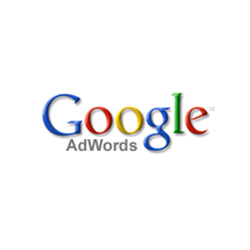As if the uproar over Citigroup’s lawsuit against All Citi Pawn (blogged here) weren’t enough today, this article from Slate describes Citi’s decision to go forward with a $400 million naming rights plan of the New York Mets new baseball stadium. The author of the article summarizes the benefits of the plan, despite Citi’s current lack of capital, this way:
In order for Citi to weather the storm, recover, and pay back taxpayers (and insulate them from further losses), the company must invest for both the short- and long-term. For companies in highly competitive consumer markets, marketing and advertising are essential, entirely justifiable expenses. Companies—even companies getting bailed out by the feds—need to attract customers and to build their brand image. It’s difficult to measure the value of any specific campaign or ad. But there’s reason to think that for this company, at this stadium, in this location, a naming-rights deal might not be such a bad long-term move.
[…]
Of course, people who read about games at Citi Field on ESPN.com won’t be learning much about Citi’s mortgage rates. But naming rights, especially if they endure, can perform another vital function for brands. It can help make them part of the vernacular. The greatest desire of any marketer is for her product’s name to work its way into conversations. When I was growing up, it was common to say, “I want a Coke” when you were referring to any kind of soda. People ask for a Kleenex when they mean a tissue, say they’re going to Xerox a document even if they’re using a Ricoh copier, and speak of Googling when they refer to an Internet search. Stadium naming rights can help products and brands gain that sort of status. Since 1926, baseball fans on the north side of Chicago have spoken about going to games at Wrigley Field. Does that make fans more likely to buy Wrigley’s gum products? It can’t hurt. “Meet me at Citi,” doesn’t quite have the same ring as “Meet me at Shea.” But after 20 or 30 years, it might.
Professor Rebecca Tushnet notes the serious problem with the final paragraph, which essentially encourages “genericism” of trademarks (the development of language such that a term that once was a trademark suddenly becomes a synonym for the good or services that the mark once described). Her post is titled “This is why I don’t believe in most forms of genericism,” and she writes:
These days, consumer understanding of branding allows Google, Kleenex and Xerox to preserve their marks while also being conversational terms for their categories. [The quote] is crazy talk from black-letter trademark law’s perspective, but that’s because the black-letter law doesn’t reflect current reality.
I certainly agree with the theoretical underpinnings of Professor Tushnet’s statement–that consumers can understand the difference between GOOGLE for “searching the internet via a computer interface” and engaging in Googling to find information, between asking someone for a kleenex to wipe a runny nose and getting KLEENEX brand tissues at a store; between purchasing a XEROX brand business machine and xeroxing a copy of something.
 But the principle of genericism of trademark has to remain valid, at some level. There comes a time where the public recognizes the trademark only as the thing, not as a particular manufacturer of the thing. And it becomes unfair to prohibit the competitor making the thing from referring to the thing just like the rest of consumers. If I wanted to start a business today, shouldn’t I be able to call my product KAISER escalators? Not KAISER brand people moving electric stairs that move people up a floor or more? At one time, ESCALATOR was a brand name for moving stairs, but eventually consumers came to understand all brands of moving stairs to be escalators. While claims of trademark genericism are probably overasserted, it’s not a concept that should be abandoned. (To be honest, I’m surprised that Coca-Cola has survived a genericism claim, at least in the South. My idea for Pepsi’s new marketing campaign in the South? “Wanna coke? Wanna Pepsi!” In sum, the issue shouldn’t be whether “rogue” consumers have begun to use your trademark as a noun, or worse, as a verb, but whether the use has become so pervasive as a synonym for the goods and services that it would be unfair to prevent competitors from using the same term to describe their goods and services.
But the principle of genericism of trademark has to remain valid, at some level. There comes a time where the public recognizes the trademark only as the thing, not as a particular manufacturer of the thing. And it becomes unfair to prohibit the competitor making the thing from referring to the thing just like the rest of consumers. If I wanted to start a business today, shouldn’t I be able to call my product KAISER escalators? Not KAISER brand people moving electric stairs that move people up a floor or more? At one time, ESCALATOR was a brand name for moving stairs, but eventually consumers came to understand all brands of moving stairs to be escalators. While claims of trademark genericism are probably overasserted, it’s not a concept that should be abandoned. (To be honest, I’m surprised that Coca-Cola has survived a genericism claim, at least in the South. My idea for Pepsi’s new marketing campaign in the South? “Wanna coke? Wanna Pepsi!” In sum, the issue shouldn’t be whether “rogue” consumers have begun to use your trademark as a noun, or worse, as a verb, but whether the use has become so pervasive as a synonym for the goods and services that it would be unfair to prevent competitors from using the same term to describe their goods and services.
If anyone else has comments, I’d be happy to consider them.
(Image from Yewenyi, via Flickr, used pursuant to the Creative Commons limited rights license)


